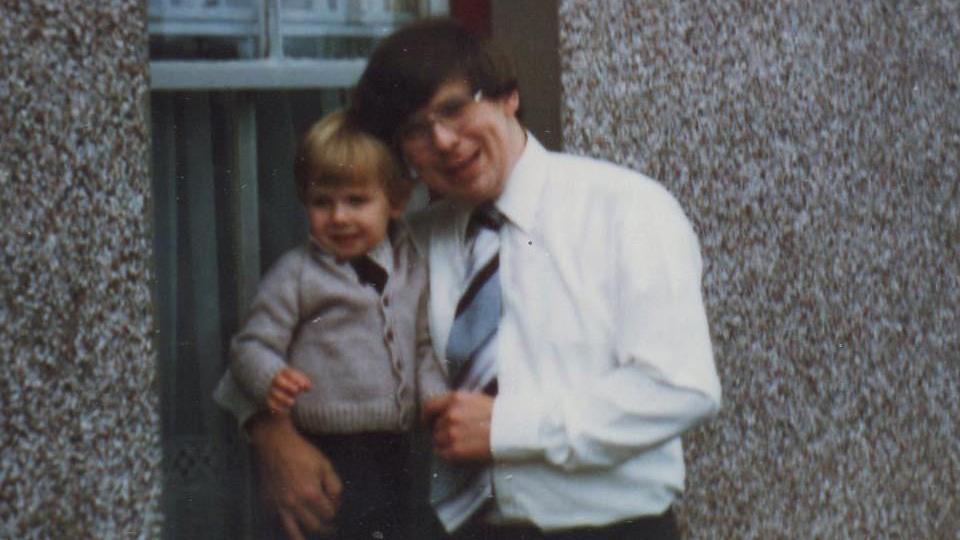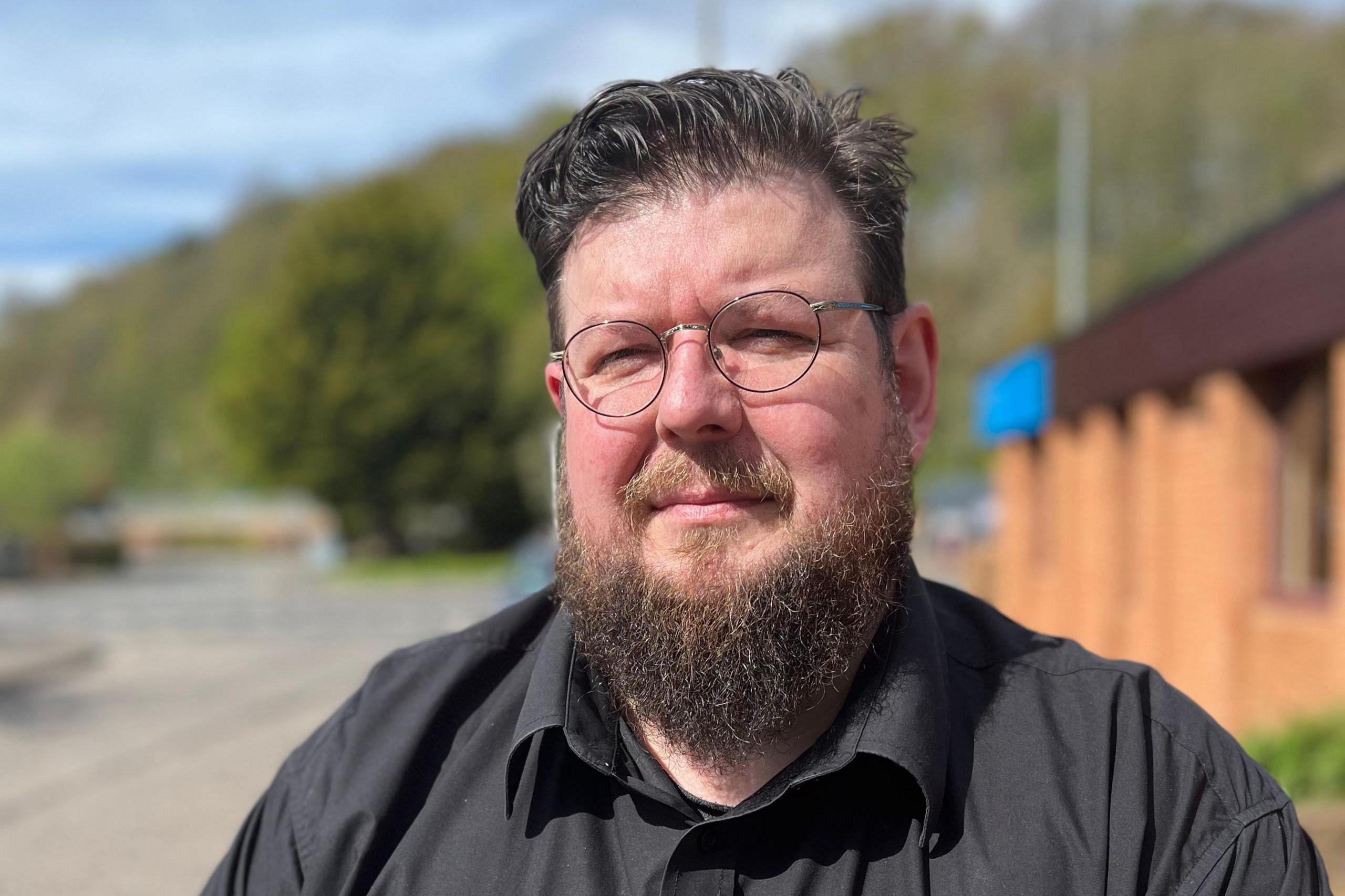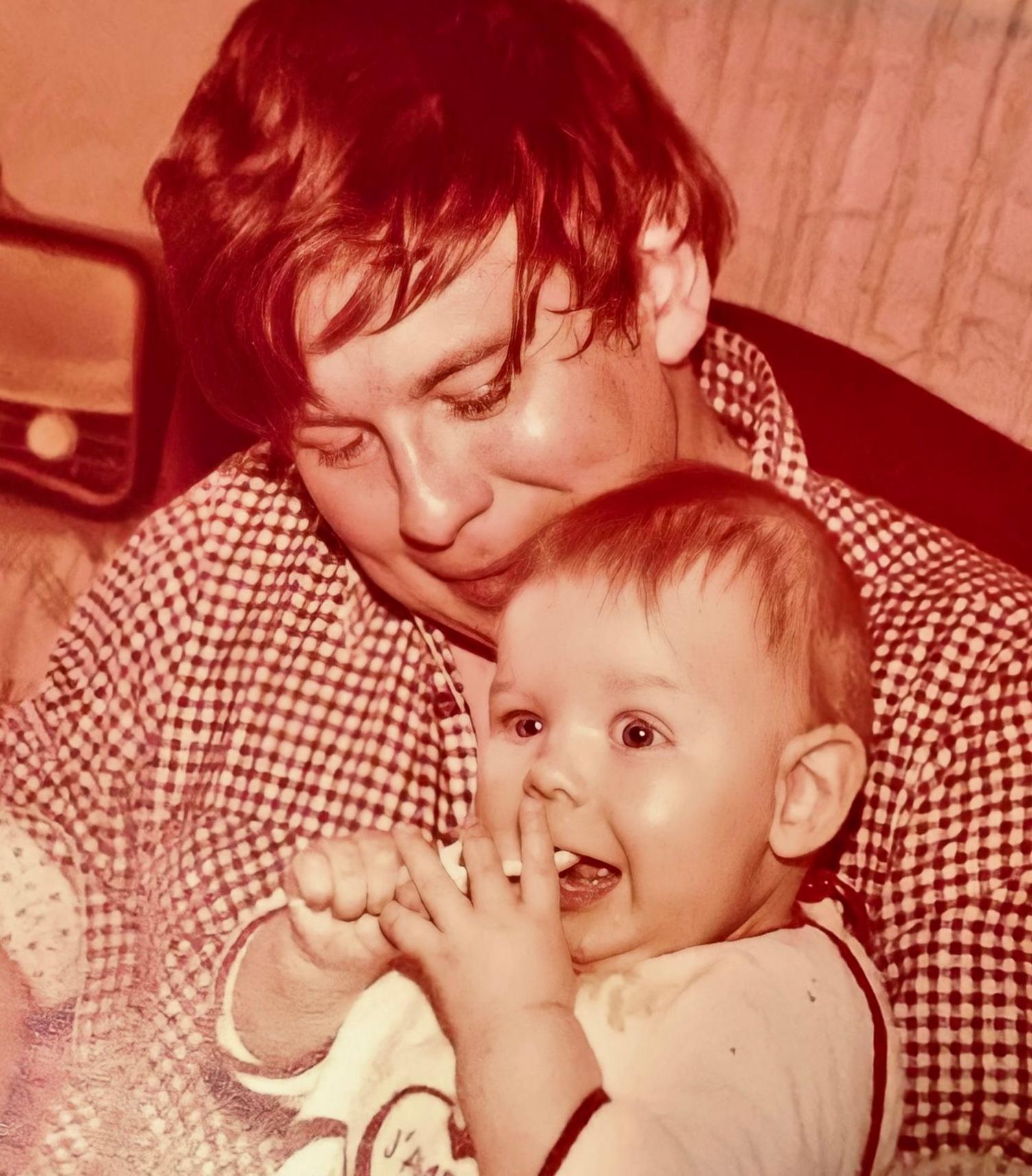Infected blood death stigma drove widow and son overseas

Bob Strachan with his father, John, who contracted HIV during a blood transfusion
- Published
Stigma surrounding the death of Aberdeen church elder John Strachan was so severe that it forced his widow to emigrate.
Having contracted HIV from one of his regular blood transfusions, the 44-year-old engineer died in October 1987.
Almost four decades on - and ahead of the UK infected blood inquiry findings being published - his only son continues to relive the day his "world fell apart".
Bob Strachan said: "My father died - just two weeks before my ninth birthday - and that's when the rumours started."
Across the UK more than 3,000 people died after contracting HIV or hepatitis C through NHS transfusions and other treatments during the 1970s and 80s.
Haemophiliac John Strachan regularly required blood transfusions at Aberdeen Royal Infirmary.
Despite his health problems, he had continued to lead an active and community-focused life, particularly around the church.
But following his death, word quickly spread through the congregation about the cause of his death.
Son Bob explained: "My mum protected me from what was all being said, but some years later I learned of all the additional heartache she went through.
"There was a lot of stigma surrounding HIV and Aids in the 1980s - and one member of the church made it her business to let everyone know how my father died without adding any of the context.
"Back then you only had HIV if you were either gay or took drugs.
"My mother took me away from it all and we went first to New Zealand and then on to Canada to be with family members.
"We eventually moved back to Scotland and settled in the Stirling area where she started to rebuild our lives."

Bob Strachan is now a pastor and counsellor in Jedburgh
Mr Strachan also believes his father was not told of his positive HIV results for six months, putting both himself and his mother at risk of infection.
He also feels that his paternal grandfather's death a few years later was a direct consequence of the scandal.
The 45-year-old psychology graduate, who works as a pastor and counsellor in Jedburgh, admits the scars from his childhood have yet to fully heal.
He added: "My world fell apart when my father died and that pain has never gone away.
"The more I found out about what had actually happened made everything even worse.
"My grandfather gave up on life after my father died - he died from a broken heart.
"This is the biggest health scandal we've had in the NHS and me and my family were all caught up in it."

Bob Strachan was to lose his father before his ninth birthday
Scotland's public inquiry into contaminated blood led to a support scheme being introduced in 2017.
It initially provided financial help and wider support for people infected with hepatitis C, HIV or both as a result of NHS treatment.
The scheme was expanded to also provide payments to partners of infected people who had died.
A UK-wide inquiry began in 2018, with former judge Sir Brian Longstaff taking evidence from current and former parliamentary ministers from across all four nations, as well as survivors and bereaved family members.
The report of his findings will be published on 20 May.
While much of the narrative surrounding the inquiry is about compensation for victims, Mr Strachan believes an acknowledgement and an apology will be just as welcome.
He added: "All the politicians seem to be talking about is how much money should be paid out.
"This is about so much more than people looking for compensation payments.
"Yes, people should receive compensation as their loved ones died through no fault of their own, but I want to know that there is a realisation by the people involved that this had widespread impact on families and communities.
"I want them to acknowledge that my mum lost her husband, I lost my father and my children missed out on their grandfather.
"An apology will go a long way to bringing closure."